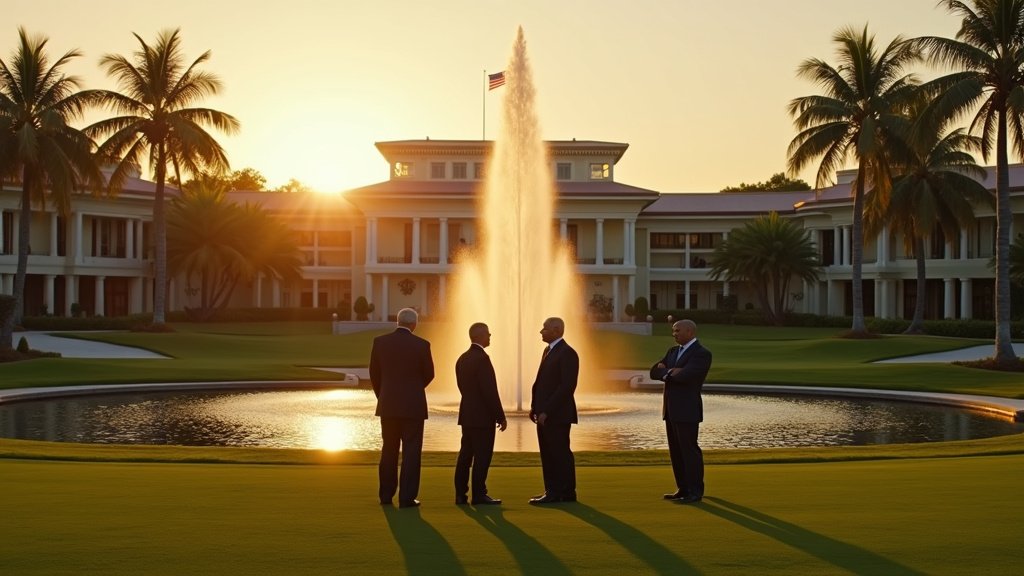Former U.S. President Donald Trump has announced that his Trump National Doral Miami golf club will serve as the venue for the 2026 G20 Summit. The decision marks a significant return of a major international gathering to a property owned by the former president, occurring as the United States assumes the G20 presidency for 2026, coinciding with the nation’s 250th anniversary. The summit is scheduled for December 14-15, 2026.
Trump made the announcement from the Oval Office, citing Doral’s strategic advantages, including its proximity to Miami International Airport and its extensive amenities, as ideal for hosting world leaders. “It’s going to be a very exciting thing to host the G20,” Trump stated. “As we celebrate our nation’s 250th anniversary next year, the United States will have the honor of hosting exactly that. The G20 summit right here in America, for the first time in nearly 20 years.”
The selection of Trump National Doral Miami immediately brings to the forefront concerns over potential conflicts of interest, a situation reminiscent of a previous attempt by the Trump administration. In 2020, the idea of hosting the G7 summit at the same Doral property was put forward but was ultimately abandoned following significant bipartisan criticism and ethical objections regarding the president potentially profiting from a government event.
Despite the echoes of past controversy, the White House has stated that the 2026 G20 summit will be hosted “at-cost, and will receive no profit from either the State Department or a foreign government.” Trump himself has insisted that he will not profit from the event, asserting, “There’s no money in it. We want to make sure it’s good.” He added that attendees would be billed at cost for services rendered.
National Economic Council Director Kevin Hassett is slated to serve as the lead coordinator for the summit, while Treasury Secretary Scott Bessent will organize the agenda. An administration official indicated a return to foundational G20 principles, focusing on economic growth and financial stability, potentially leading to a smaller guest list than in recent years.
Miami Mayor Francis Suarez, who was present at the announcement, lauded the decision, emphasizing the economic benefits and the prestige it would bring to the city. “It puts us on the global map,” Suarez remarked, highlighting the positive impact on Miami’s hospitality industry and small businesses. However, the influx of security personnel and logistical demands associated with hosting such a high-profile event are also expected to create significant traffic and infrastructure challenges.
International Diplomacy and Guest Invitations
During the announcement, Trump expressed his willingness to invite Russian President Vladimir Putin and Chinese President Xi Jinping to attend the 2026 summit. While both leaders represent countries that are full members of the G20, Trump suggested they could attend as “observers,” adding, “I’d love them to, if they want to.” This stance comes amid complex geopolitical dynamics, including past efforts by Trump to engage with Russia and China.
A Shift in Summit Attendance
Separately, Trump confirmed he will not attend the 2025 G20 Summit in Johannesburg, South Africa, scheduled for November. Instead, he will dispatch Vice President J.D. Vance to represent the United States. This decision follows Trump’s vocal criticisms of South African policies and strained diplomatic relations. Vance’s attendance signals a high-level U.S. presence at the 2025 summit, even as Trump focuses on the preparations for the 2026 event on American soil.
The G20, an international forum for the world’s largest economies, typically rotates its hosting duties among member nations. The United States, holding the presidency in 2026, will be hosting the leaders’ summit for the first time in nearly two decades.
As the world looks towards Miami in 2026, the selection of Trump National Doral for the G20 summit is poised to be a focal point for discussions on global economic policy, international relations, and the intricate intersection of private business interests with public governance, setting a precedent for future trendmakers in global event hosting.





